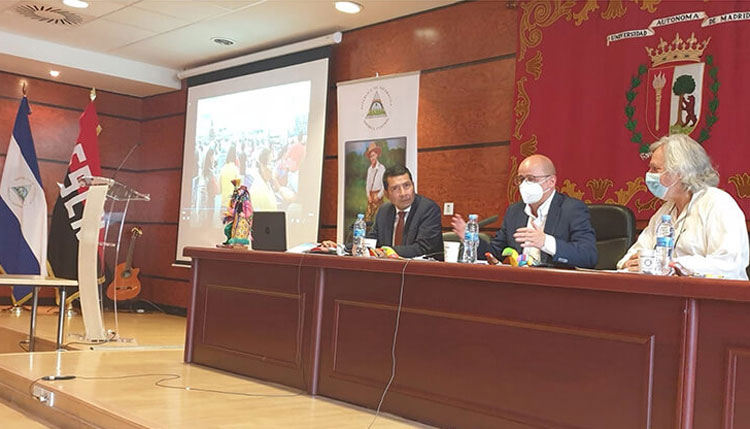Eduardo González
The President of the Government, Pedro Sánchez, assured yesterday that, as of June 7, citizens from non-EU countries will be able to enter Spain if they present a certificate with the complete vaccination schedule, regardless of whether or not they appear on the new European list of third countries to which entry restrictions have been lifted. The list includes the United Kingdom and Japan but does not include the United States, which will not prevent its citizens from benefiting from the exception announced by the Chief Executive.
The certificate, agreed last Thursday between the European Commission, the Council and the European Parliament, “is a mechanism that will facilitate mobility, as well as the arrival and transit of travelers, and that will be implemented as of July 1”, Sánchez explained during an event at the International Tourism Trade Fair (FITUR) in Madrid to present the details of the Digital Green Certificate, which was also attended by the Minister of Industry, Trade and Tourism, Reyes Maroto, and the Minister of Health, Carolina Darias.
The certificate will be available in digital and paper format and will serve to demonstrate whether a person has been vaccinated against the coronavirus, has a negative test or has overcome the disease. Thursday’s agreement will be put to a vote in the Committee on Civil Liberties, Justice and Home Affairs on May 26 and will then go to the European Parliament plenary, which will have to confirm it at its June 7-10 session, and to the Council, which will also have to endorse it.
On the other hand, the Official State Gazette (BOE) published yesterday the Order modifying the criteria for the application of a temporary restriction of non-essential travel from third countries to the EU and the Schengen area due to COVID-19, signed by the Minister of the Interior, Fernando Grande-Marlaska, and which will enter into force from 00:00 hours on May 24.
The Order is published one day after the EU Council decided to update Recommendation 912 of June 30, 2020, on the temporary restriction of non-essential travel to the European Union. The update raises the maximum cumulative incidence rate of COVID-19 infections required for entry into the EU from 25 to 75 per 100,000 population and will lift non-core travel restrictions for third-country nationals who have received full doses in non-EU countries where EMA-approved vaccines (BioNTech/Pfizer, Moderna, AstraZeneca and Janssen) or WHO-approved vaccines (the Chinese Sinopharm vaccine) are administered.
Both the European update and the Ministerial Order will allow the incorporation of two new countries, the United Kingdom and Japan, to the European and Spanish list of third countries that to date passed “the cut”. The rest of the list is made up of Australia, New Zealand, Rwanda, Singapore, South Korea, Thailand, China and Israel.
In this regard, Pedro Sánchez said yesterday that the extension of the list is “undoubtedly great news”, but he specified that, as of June 7, tourists from all countries with which there is not full freedom of movement, including the United States, will be able to enter Spain as long as they have a certificate of having received the full course of a vaccine authorized by the EMA or the WHO. This decision is also covered by the EU decision, which authorizes the entry of individual citizens who present the vaccination certificate even if their non-EU countries are not on the list.
British and Japanese travelers
One of the reasons why the Ministry of the Interior has decided to activate the Order is because of the possibility that the modification of Recommendation 912 “will allow the inclusion of the United Kingdom and Japan among the countries exempt from restrictions”, along the same lines as other Member States that have already approved the entry of citizens from these countries, such as Portugal -which currently holds the presidency of the EU Council-, Malta, Cyprus and Greece.
“As regards the United Kingdom, Spain receives annually a number of visitors that is not only particularly relevant in absolute terms but also relative, so that many economic sectors need to adapt their capacities in advance to the changes that occur at borders”, continues the text published in the BOE. The Interior has therefore decided to extend the list “after consultation with the other Ministries concerned” and “in order to include the United Kingdom and Japan”.
In any case, this decision of the EU Council and the Home Office comes two weeks after the British Government announced a “green list” of twelve countries and territories to which travel would be facilitated from May 17 and in which Spain, France and Greece do not appear (included in the “amber” zone, following the colors of the traffic light). The list, which can be revised every three weeks, includes the countries as a whole and does not provide for any differentiated treatment by region, such as the Canary Islands or the Balearic Islands.







